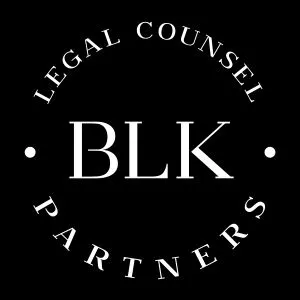- within Employment and HR topic(s)
- within Media, Telecoms, IT, Entertainment, Finance and Banking and Antitrust/Competition Law topic(s)
- with readers working within the Retail & Leisure industries
The Abu Dhabi Global Market (ADGM) has recently introduced two significant regulatory updates aimed at bolstering whistleblower protections: the Employment Regulations (Amendment No. 1) 2024 and the Whistleblower Protection Regulations 2024.
These regulations, which come into effect on 5 July 2024, impose new obligations on employers operating within the ADGM to facilitate, assess, and protect whistleblower disclosures. Employers must take immediate steps to ensure compliance with these enhanced protections to avoid potential penalties and reputational risks.
Key Highlights of the New Regulations
Protection Against Retaliation
Employees who, in good faith, report legal violations or financial crimes are now afforded robust protections against retaliation. This includes protection from dismissal, forced resignation, adverse changes to employment terms, or any other actions likely to cause detriment or disadvantage. Employers who fail to comply with these protections may face significant fines, sanctions, or other regulatory actions.
Scope of Protected Disclosures
The regulations extend protection to disclosures related to a wide range of issues, including money laundering, fraud, financial crimes, and any contraventions of ADGM laws. Importantly, disclosures can be made anonymously, provided they are made in good faith. This broad scope ensures that employees feel secure in reporting misconduct without fear of reprisal.
Whistleblower Reporting Channels Employees may report concerns through multiple channels, including directors or designated internal reporting persons, auditors, regulators or law enforcement agencies and any other prescribed authorities under the regulations. This multi-channel approach ensures that whistleblowers have accessible and confidential avenues to raise concerns.
Mandatory Whistleblower Procedures All establishments within the ADGM (including companies, branches, and other entities) are now required to implement and maintain effective arrangements to facilitate the making of whistleblowing statements, assess and, where appropriate, escalate concerns arising from such disclosures; and protect the identity of the whistleblower.
Additionally, certain entities such as Authorized Persons, Recognized Bodies (e.g., law firms, accounting firms), Large Establishments (those with an annual turnover or assets under management exceeding USD 13.5 million and employing more than 35 individuals), and DLT Foundations must establish written policies outlining these arrangements and retain whistleblower records for a minimum of six years. The ADGM Registrar has been granted broad authority to enforce compliance with these regulations.
Regulatory Oversight and Enforcement
The ADGM Registrar has been granted broad authority to enforce compliance with these regulations. Non compliant entities may face private or public censures, financial penalties, or even the suspension or revocation of licenses. This underscores the importance of adhering to the new requirements.
Record-Keeping Requirements
Employers must maintain detailed records related to whistleblower disclosures for at least six years from the resolution of all matters associated with the disclosure. This requirement ensures transparency and accountability in the handling of whistleblower cases.
Next Steps for Employers
With the 31 May 2025 deadline for compliance approaching, employers must act promptly to review and enhance their internal policies and procedures. Key steps include:
- Conducting a thorough assessment of existing whistleblower frameworks;
- Implementing robust confidentiality measures to protect whistleblowers;
- Establishing clear reporting channels and escalation protocols; and
- Ensuring all relevant staff are trained on the new requirements.
Failure to comply with these regulations could result in significant legal, financial, and reputational consequences. Employers are advised to seek legal guidance to ensure full compliance and to mitigate potential risks.
How Can We Assist?
Our team is well-versed in the intricacies of ADGM regulations and is available to provide tailored advice on implementing effective whistleblower protection frameworks. We can assist with policy drafting, compliance assessments, and training programs to ensure your organization meets the new regulatory standards
The content of this article is intended to provide a general guide to the subject matter. Specialist advice should be sought about your specific circumstances.




